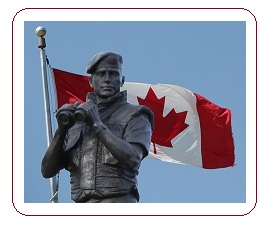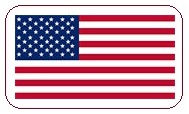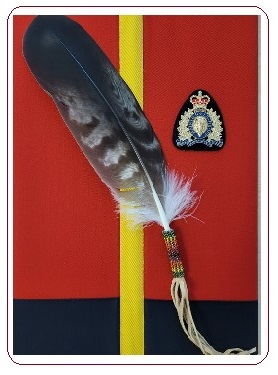True and Fascinating Canadian History
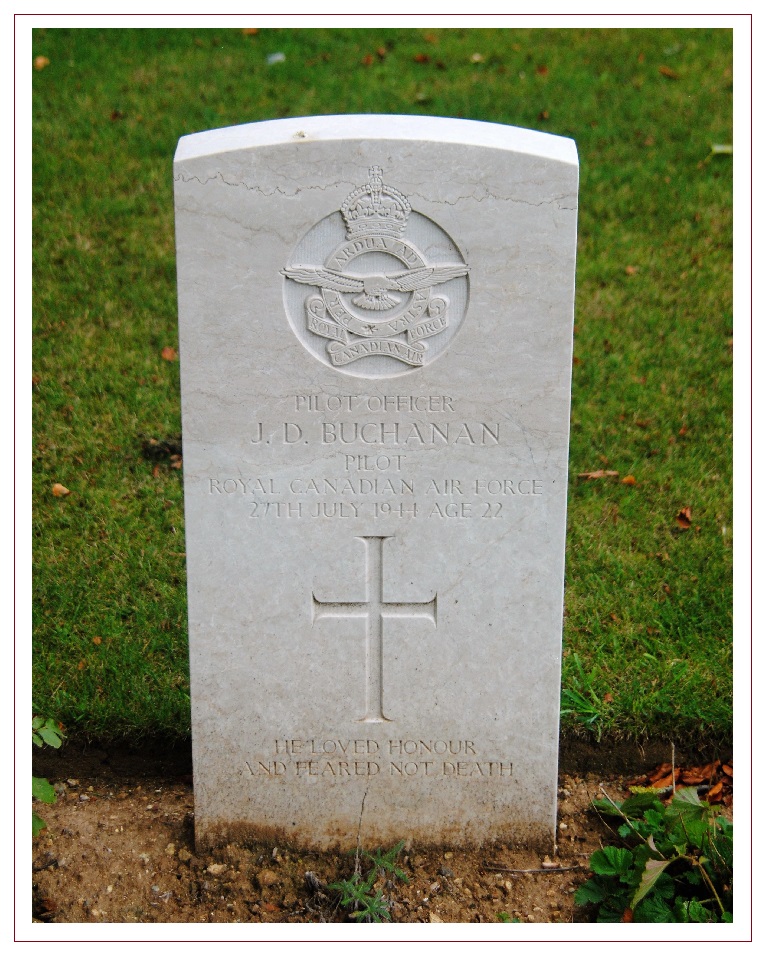
Vet of the Month: August, 2024
Reg.#13675, Constable John D. Buchanan. WWII
RCMP Vets. Ottawa, ON
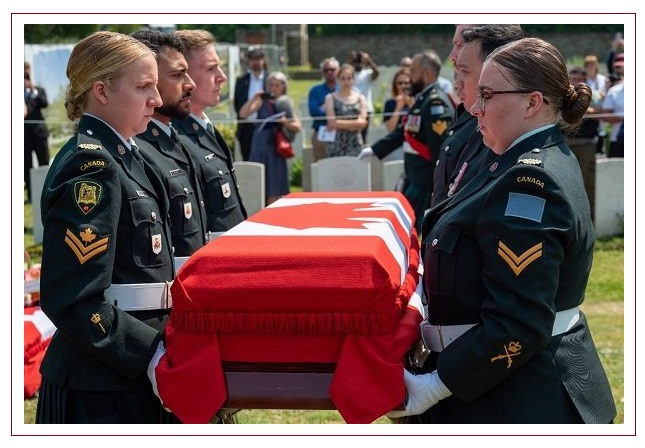
Down through time and history, Canadians have had a special place in their heart and shown their deep appreciation to Veterans especially those who sacrificed their life in war. Canadians have never forgotten their war dead -- deceased veterans of the Canadian Army, the Royal Canadian Navy and the Royal Canadian Airforce.
Of such esteem, it is not uncommon in Canada for a highway or a building to be named after a noted war veteran. Highway 416 in Ottawa is otherwise known as Veterans' Memorial Highway, the federal building in Winnipeg was named the Victory Building, and the National Defence Building in Ottawa was named after Major-General George Randolph Pearkes VC. Canadians are well known for keeping Veterans uppermost in their minds.
In this short story, we remember former RCMP constable John Buchanan. After first choosing a career in the RCMP, he enlisted in the RCAF. WWII was underway. Buchanan was killed flying Typhoon MN494 on July 27, 1944 in the vicinity of Tilly-la-Campagne in northern France.
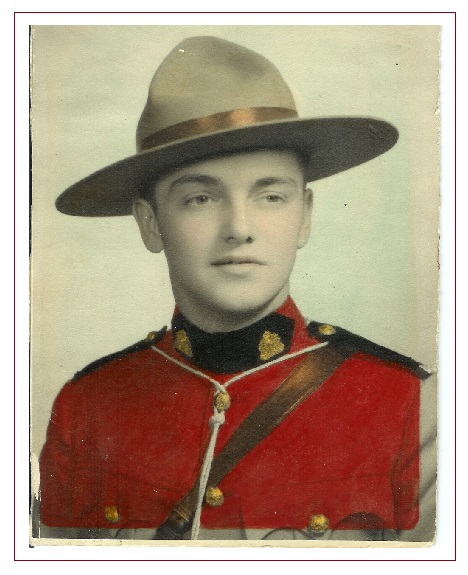
John Buchanan was born in Toronto in April, 1922, but he grew up in Ottawa when his parents relocated. The Veterans Canada website provides an excellent overview of Buchanan’s years as a young man – "he was highly interested in sports; in particular track and field, basketball and football. His school record assessed him quite thoroughly, it described him as, "Alert, keen, a well-disciplined lad, excellent motivation -- determined and fairly stable, although he possessed a mild impediment in speech and stammering". He was rated as, “Good average intelligence, powerful athletic physique, although he, “may be rough and have difficulty in coordinating fine moves. Maybe heavy handed. Excellent aircrew material, excellent for the latter. Too tall and heavy for a gunner, above average." His rough and tumble character can be attributed to sportmanship -- especially rugby and football where he excelled at Glebe Collegiate in Ottawa. As a young man, Buchanan wanted to join either the RCMP or the RCAF. Based on his physical attributes as well as his outgoing character, and his willingness to take risks, Buchanan unquestionably would have excelled in either profession -- as a police officer or as a pilot.
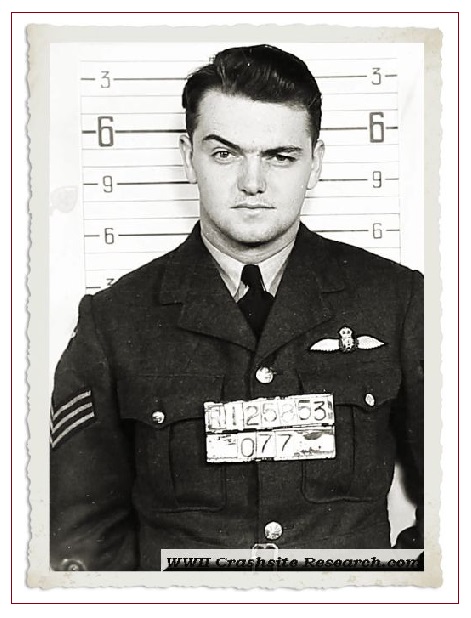
Buchanan joined the RCMP in September, 1940. He was eighteen years of age. After Basic Recruit Training at ‘Depot’ Division in Regina, he was first posted to detachments in Saskatchewan, however WWII was underway, and after one year of service with the RCMP, he resigned from the RCMP, and he enlisted with the RCAF in Ottawa. It was September 12, 1941. It was well known among Buchanan's chums that someday he intended to return to the RCMP.
Upon his enlistment with the RCAF, Buchanan was sent to Toronto for Flight Training. He was assessed as, “Practical, hard working airman, possessing good team spirit. Carried out his duties at Flight S quite well. Deportation is very good." At the next level of flight training, his assessment read, "Cool, capable, and hardworking. Is intelligent and given promise of being an above average service pilot." He was listed as 2nd out of 41 in his ground training classes.”

Buchanan attended additional training at Uplands – he was rated as: "Average student. Progressed steadily. Very keen about flying. Airmanship is weak. Careless of details. Link Trainer progress and ability above average." He was popular with his fellow students. It was noted by the CO: "A poor type and a show-off." Buchanan received his wings in October 1942, departing from Halifax for overseas, where he arrived in the United Kingdom on November 4, 1942. In February, 1943, he was assigned to No. 55 OTU. His flight ability had improved considerably. He was assessed as, "An above average pilot. Very keen and an asset to a Squadron."
To what degree pure luck or faith play in the lives of skillful pilots who fly in combat is unknown, but Buchanan shared in more than one close call in the air. He is mentioned flying once with other members of his Squadron on June 6, 1944 when enemy fire destroyed his cockpit hood and he was left with only splinters in his arm. In all likelihood, Buchanan knew that he would soon meet more in-flight danger. In his profession, danger was to be expected.
John Donald Buchanan was killed during an enemy raid on July 27, 1944. According to his obituary, he was leading a group of four aircraft when they came under heavy anti-aircraft fire. He seemed not to be afraid, as he continued the attack at low altitude even though his aircraft was seriously hit. After his aircraft received a direct hit, Buchanan crashed.
According to his obituary, the Squadron’s Adjutant described John Buchanan as, “One of the best pilots in the Squadron. He was very keen on his job, and we have lost in him a very good section leader, and a good friend.”
Buchanan is remembered by Canadians as an exceptional Veteran who lived an extraordinary life. For a year, he was a dedicated police officer, and as a Flying Officer, he gave his life so that we, future generations of Canadians, can live in peace. John Buchanan was buried in Rainville War Cemetery, Normandy, France.
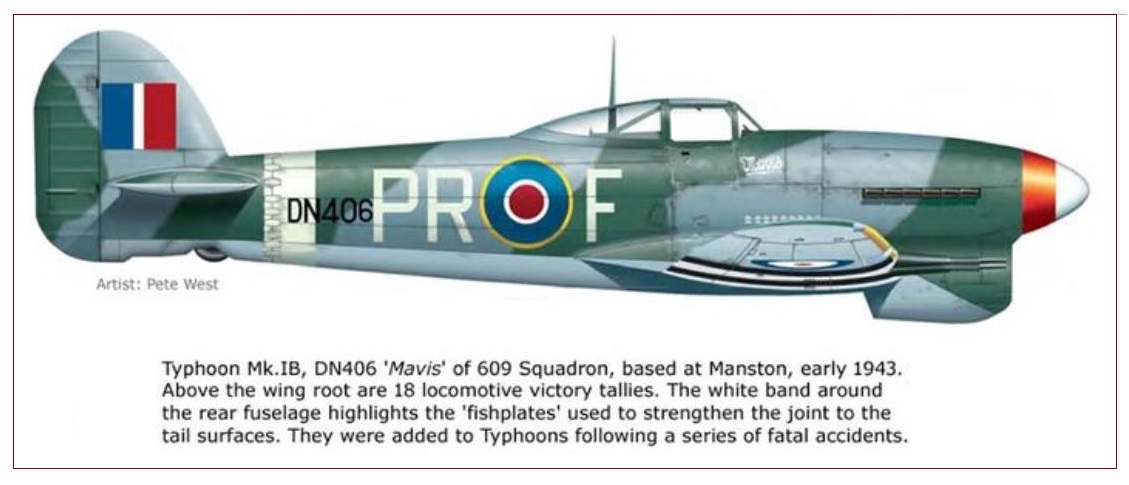
Note: The photographs of John Buchanan, his obituary and the photograph (above) of the "Typhoon" were all courtesy of FindaGrave.
Canadian Virtual War Memorial. Pilot Officer John Donald Buchanan. Royal Canadian Air Force. Service Number: J/86932
https://www.veterans.gc.ca/en/remembrance/memorials/canadian-virtual-war-memorial/detail/2847691?John%20Donald%20Buchanan
Reporting from Fort Healy,
J. J. Healy
August 23, 2024


